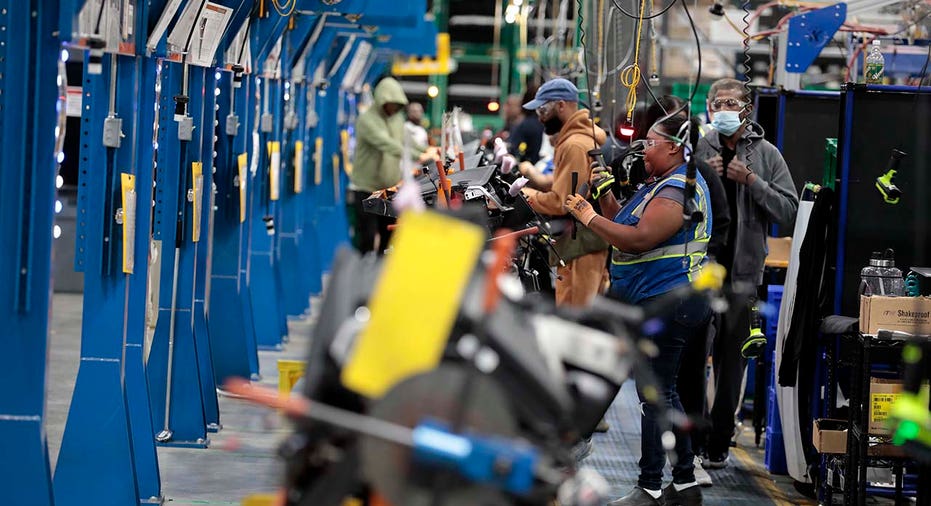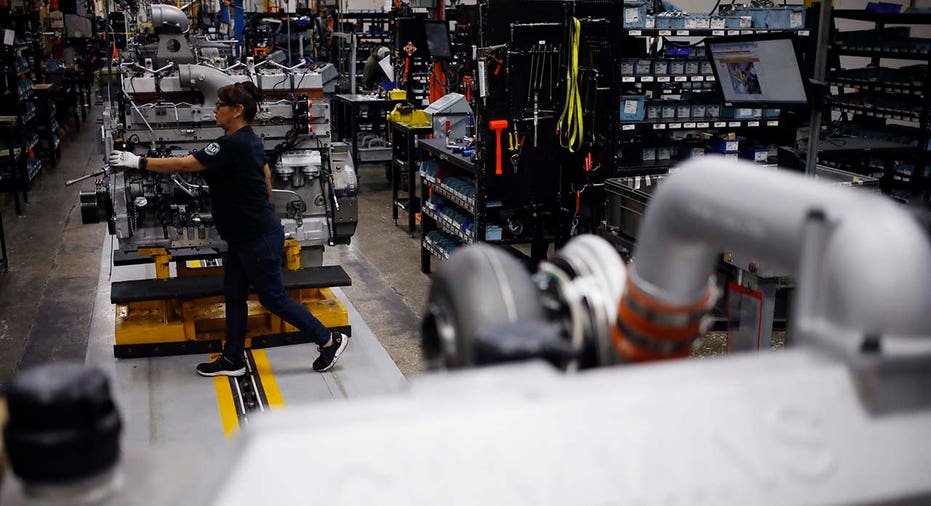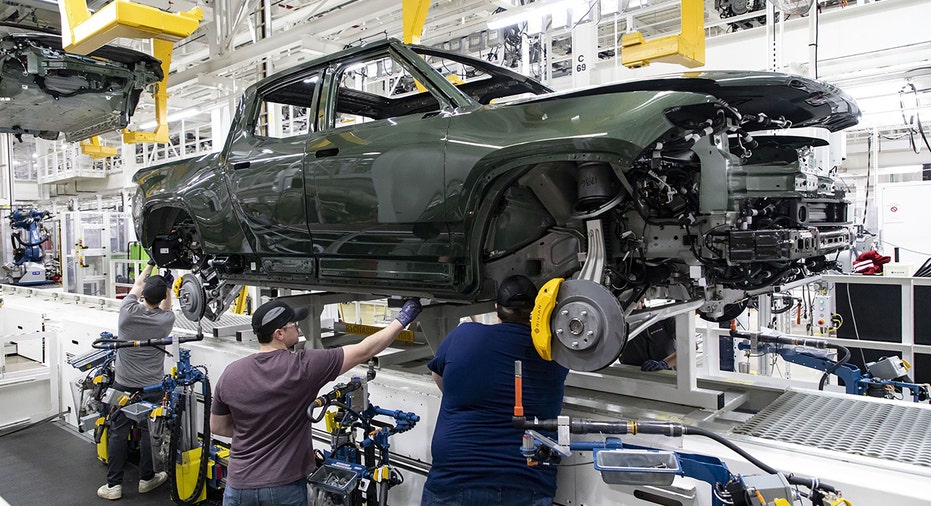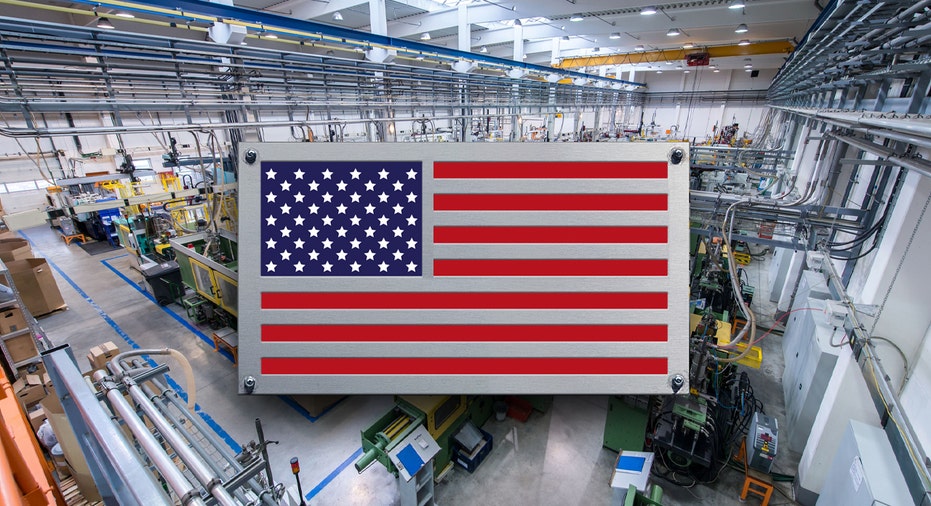US manufacturers offer way for American businesses to 'mitigate' China damage
NAM CEO argues trade agreements with allies could help lessen harm caused by CCP
US needs to re-evaluate economic relationship with China: Jay Timmons
National Association of Manufacturers President and CEO Jay Timmons discusses calls for the U.S. to ‘decouple’ business and economic activity from China.
With growing calls to decouple the economy from China, U.S. manufacturers outlined a way for American businesses to "mitigate" damages from the communist country.
"It would be very important for us to start bringing together bilateral trade agreements with some of our other allies, like the United Kingdom, Taiwan and others, so that we can start to mitigate the damage that, frankly, China has caused to the American economy and American manufacturers," National Association of Manufacturers (NAM) President and CEO Jay Timmons said Wednesday on "Cavuto: Coast to Coast."
Timmons addressed concerns from politicians over the threat of China to American national security and fears from business owners over the economic consequences of the relationship with China.
"China cheats, and it has been a very, very difficult relationship, but one that you point out is economically important not only for the United States but also for the world," he said.
Employees work on the assembly line at the Dakkota Integrated Systems manufacturing facility in Detroit, Michigan, U.S., on Thursday, May 5, 2022. Dakkota Integrated Systems is a Native American, Woman-Owned Company that manufactures Instrument Panels For Stellantis Jeep Assembly Plants. | Getty Images
Timmons argued that forming strategic, bilateral trade agreements will help the U.S. with its realignment efforts and lessen the harm China has caused to American businesses and manufacturers.
The NAM CEO added that in addition to forging these agreements, U.S. businesses must re-evaluate economic ties with China as a growing divide develops between the two kinds of economies.
"The world [is] dividing between kind of capitalistic, free market economies and command and control, dictatorial economies. And it's a different style. It's a different system," he said. "And it's one that, frankly, if we're going to be supporting systems around the world, we want to support those systems that understand and embrace our democratic values, embrace free market capitalism or at least some form of that."
It would be very important for us to start bringing together bilateral trade agreements with some of our other allies…so that we can start to mitigate the damage that, frankly, China has caused to the American economy and American manufacturers. Jay Timmons
Timmons celebrated the fact that the economic and political rivalry brewing with China is a bipartisan issue after the House Select Committee on the Strategic Competition Between the U.S. and the Chinese Communist Party held its first hearing on Tuesday.
Aric Newhouse, the senior vice president for policy and government relations at NAM, sent a letter to the House lawmakers on the select committee urging them to work with the trade group to "develop concrete policy solutions for the U.S. to strengthen our security, bolster our economy and protect American innovation."
"Our approach to China must navigate a complicated set of U.S.-China ties: China is a fierce economic competitor that frequently fails to play by the rules and a major challenger to American global influence," Newhouse explained. "Simultaneously, China is a necessary partner on global issues such as climate change and a critical market for manufactured goods. We must ensure that manufacturers in the U.S. can compete with China around the world, including in China itself."

A worker walks past cranes at the container port in Qingdao in eastern China's Shandong province on Tuesday, Jan. 14, 2020. China's exports rose 0.5% in 2019 despite a tariff war with Washington after growth rebounded in December on stronger demand f (Fox News / Fox News)
The letter outlined several areas where the committee could help, including reforming federal permitting to promote more domestic investment in energy and manufacturing, reforming tax policies, specifically the research and development (R&D) tax, developing a stronger workforce, and even advocating for investments into career and technical education.
REPUBLICAN SENATOR SOUNDS ALARM OVER US, CHINA WAR: ‘CONFLICT’S ALREADY HERE'
Timmons expressed some of the ideas in Newhouse's letter, especially in terms of permitting reform and the R&D tax credit.
"We also need to see some things done here at home, including permitting reform and a focus on R&D and the tax credit," Timmons told host Neil Cavuto. "China right now provides a 200% R&D tax credit for their research and development. And today we provide only 10% of that because it expired at the end of last year."
"There's many other things that we need to get done," he added. "Immigration to help us make the things - immigration reform, to make the things that we've got to get done here. There's a lot we can do here, but there's also a lot, obviously, that we need to do when it comes to the international stage as well."
While business leaders are faced with "difficult decisions," Timmons praised the U.S. as a location for "not only foreign investment, but for domestic investment." He attributed the nation's investment promise to tax reforms during the Trump administration, "regulatory certainty" and infrastructure and technology investments through the CHIPS and Science Act.
US needs to 'strategically isolate' China, stop funding CCP: Rep. Rob Wittman
House Select Committee on U.S.-China Competition member Rep. Rob Wittman calls for legislation to regulate China's financial impact in markets that directly fund the CCP on 'Cavuto: Coast to Coast.'
CLICK HERE TO READ MORE ON FOX BUSINESS
Timmons acknowledged that while the U.S. should start to "realign" economic ties to China, that does not mean American companies should forgo business with China altogether.
"There's one point however – many billion people in China," he said. "That is a huge market. But look, we've got to have transparency from China."
FOX Business' Eric Revell contributed to this report.


























